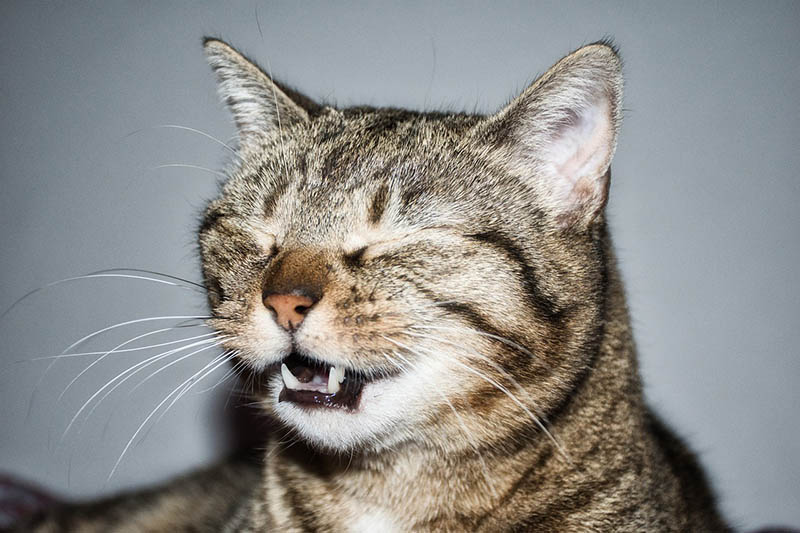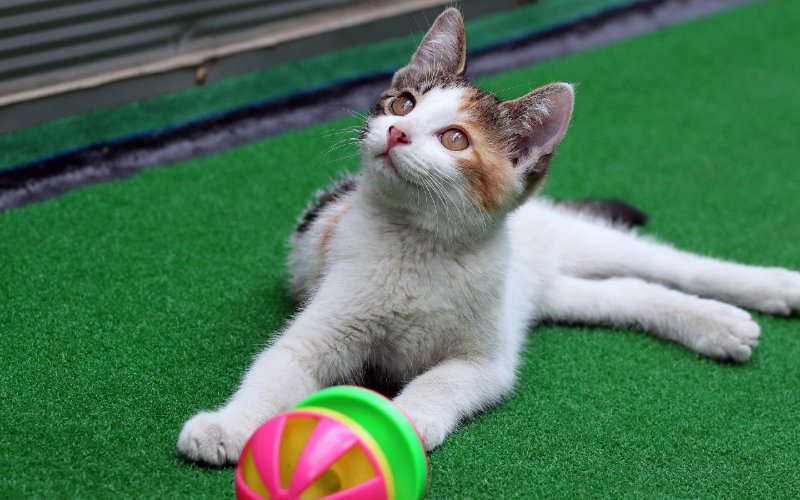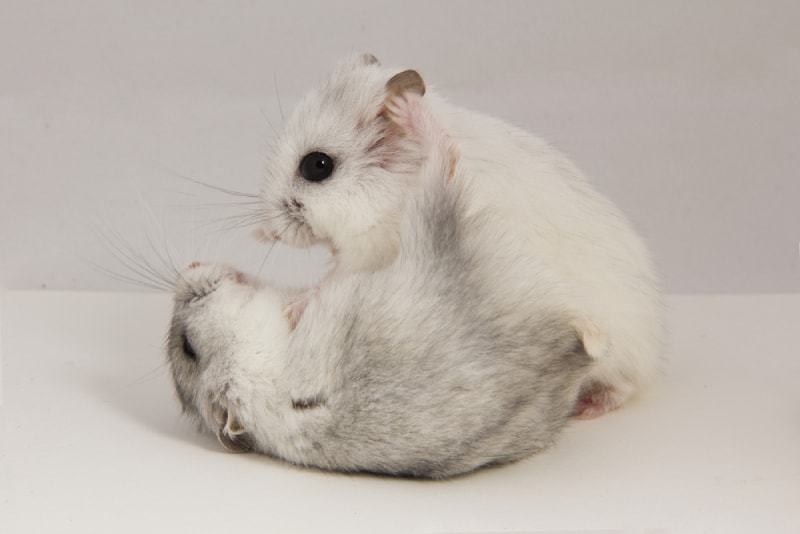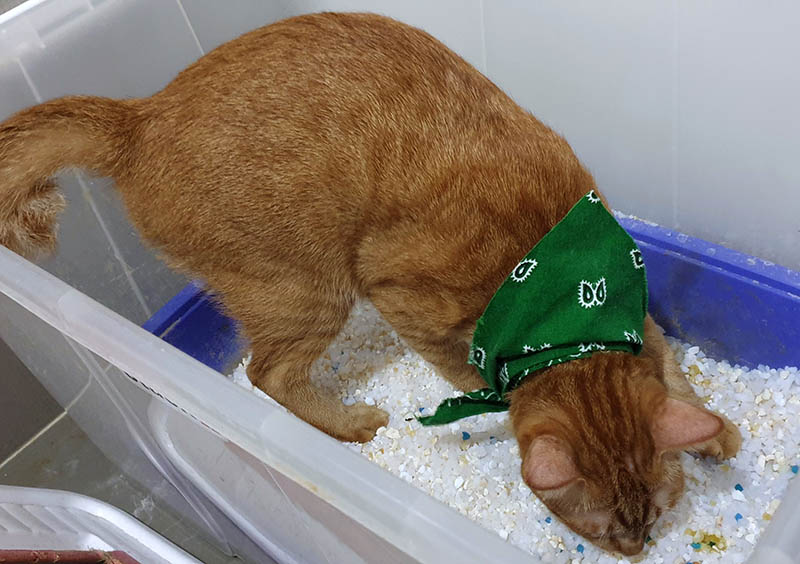VET APPROVED

The information is current and up-to-date in accordance with the latest veterinarian research.
Learn more »Click to Skip Ahead
Cat sneezes are generally not something that makes you pause unless they occur often. To determine if your cat’s sneezes are communicating something you should act upon, you have to investigate the reason behind them. We’ve collected together some of the potential reasons behind your cat’s sneezes. Although the occasional sneeze is nothing to worry about, frequent bouts of sneezing require veterinary assistance. So, if you’re wondering why your cat sneezes on you, keep reading:

The 8 Reasons Why Your Cat Sneezes on You
1. The Everyday Sneeze
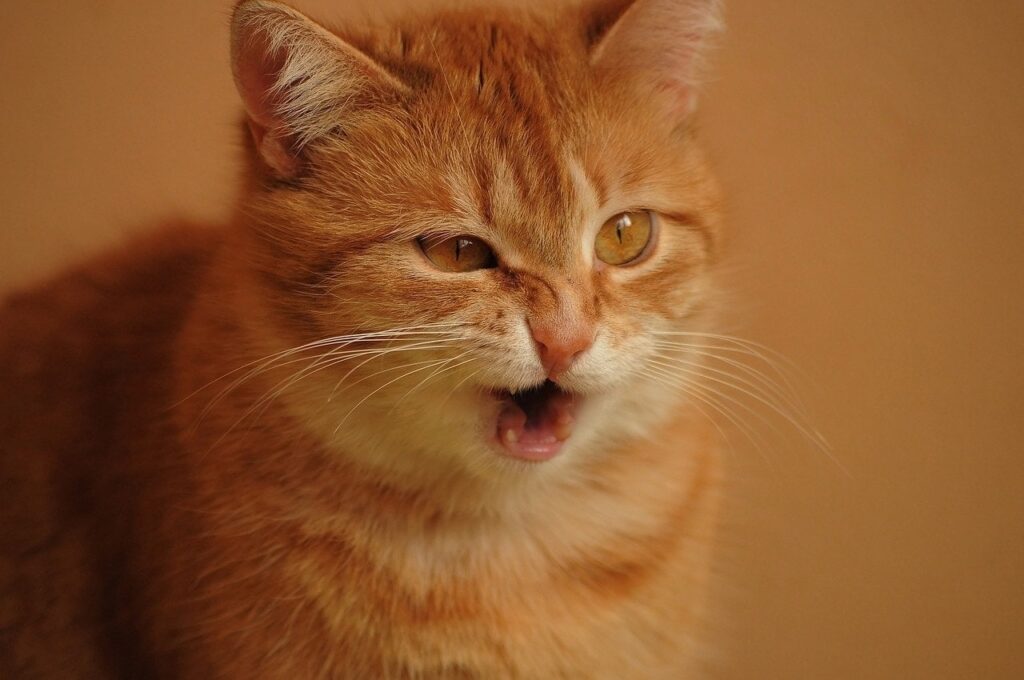
Sneezing is completely normal and not a cause for concern. However, keep an eye on them to make sure the sneezing doesn’t continue throughout the day. Usually, it’s just because a bit of dust has tickled their nose. Cats can also make a snorting sound that sounds like a sneeze or a coughing fit, and it’s known as “reverse sneezing.”
2. Upper Respiratory Infections (URIs)
This is often referred to as “cat flu” or “the cold,” and sneezing is a common sign of URIs in cats. URIs can be bacterial, viral, and even fungal, but that is less common. Generally, these infections last seven to 21 days, but the average is 10 days.
- Decreased appetite/dehydration
- Lethargy/fever
- Recurring sneezing over several hours or days
- Repeated coughing/swallowing
- Unusual discharge from the eyes or nose that can be clear, green, or yellow, sometimes blocking the nostrils
- Difficulty breathing or breathing with an open mouth (emergency)
If you notice any of these signs, contact a vet immediately. While very mild URIs can sometimes resolve on their own, more severe cases will require treatment, especially if the cat is not eating or having any trouble breathing.
3. Nasal/Sinus Issues
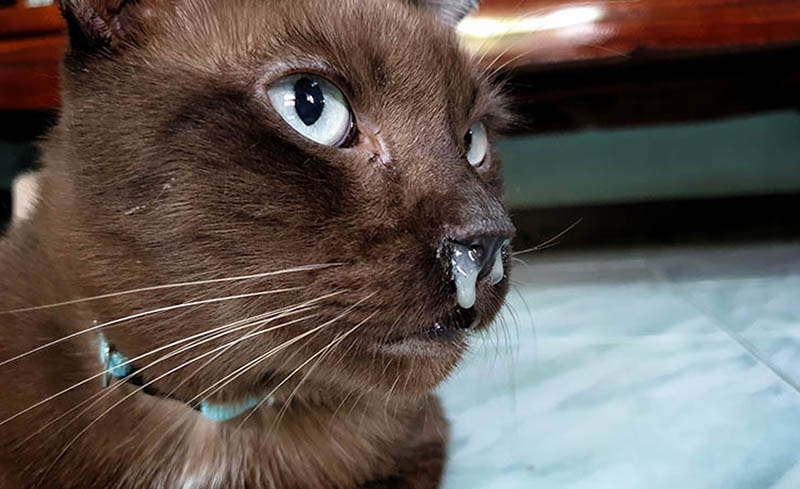
Rhinitis and sinusitis are inflammatory conditions that cats can suffer from and might be the reason behind all that sneezing. Rhinitis describes the inflammation of the mucous membranes of the nose, which can give your cat a stuffy nose. Sinusitis is the inflammation of the lining of the sinuses, and it can occur at the same time as rhinitis to form “rhinosinusitis.”
- Discharge or tearing from the eyes
- In mild cases, the nasal discharge will be clear, and in severe cases, it will be green, yellow, or bloody
- If fungal, there may be a lump on the bridge of the nose
- Labored breathing, snoring, or breathing through the mouth
- Pawing at the face
- Reverse sneezing
4. Dental Disease
When dental disease affects larger portions of the mouth, in some instances, it can cause sneezing, especially if it affects the roots of the teeth and the roof of the mouth. It’s best to see your vet as soon as possible if you suspect it is the cause.
5. Inhalation of a Foreign Object
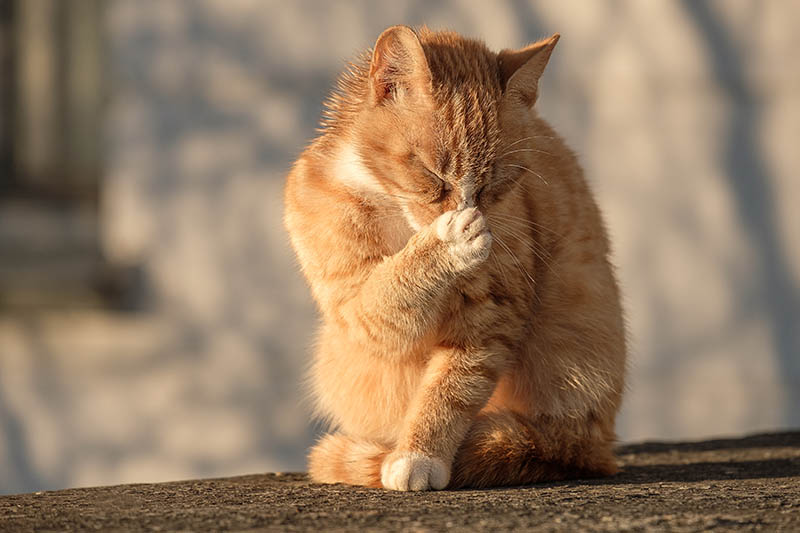
It’s more common in dogs, but it’s still possible for a cat to inhale a foreign object and get it stuck in their nose. Your cat might try to get your attention for some assistance by sneezing on you because they won’t be comfortable having their nasal passage blocked. If you suspect an obstruction is the reason, get them seen by your vet promptly.
6. Allergies
Allergies aren’t a common cause of sneezing in cats, unlike in humans. Instead, you’ll usually see signs of skin irritation like itchiness, lesions, and hair loss. However, some cats might suffer from other signs like itchy, watery eyes, coughing, sneezing, and wheezing, particularly if your cat has asthma. While there is no cure for this, signs can be managed with specialized treatment.
7. Tumors (Neoplasia) and Polyps
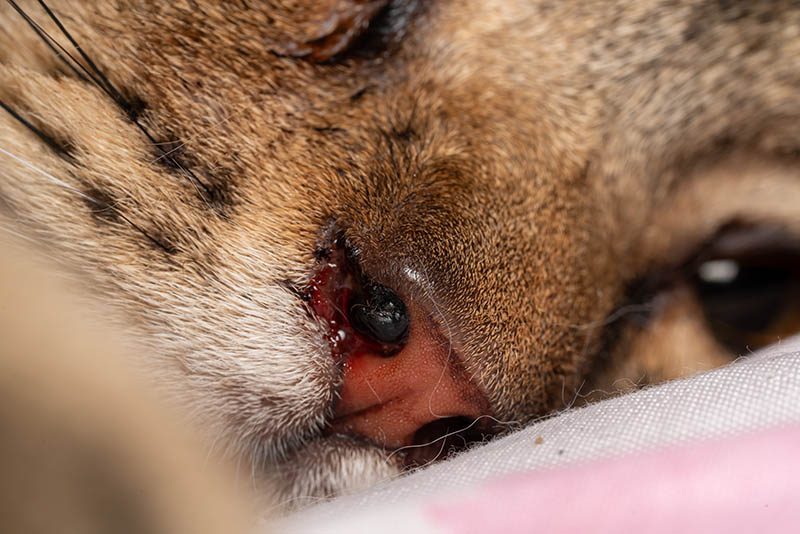
Tumors can sometimes grow inside the nasal passage, especially in older cats, which causes irritation and inflammation. Unfortunately, when this is the reason behind a cat’s sneezes, the prognosis is usually unfavorable. Also, like with dental disease, tumors can be painful.
On the other hand, younger cats can have polyps in their nasopharynx or inner ear, which may lead to sneezing, head shaking, nasal discharge, difficulty swallowing, snorting, and sometimes difficulties breathing.
8. Fungal Infections
While it’s less common than bacterial or viral infections, fungal infections can be the reason for your cat’s sneezing. The fungus called Cryptococcus is generally the guilty party, but there are effective treatments for infections in your cat’s nose. Fungal infections in the nose can be painful, so be sure to contact your vet as soon as possible.

Other Frequently Asked Questions
Should I Be Worried About My Cat Sneezing on Me?
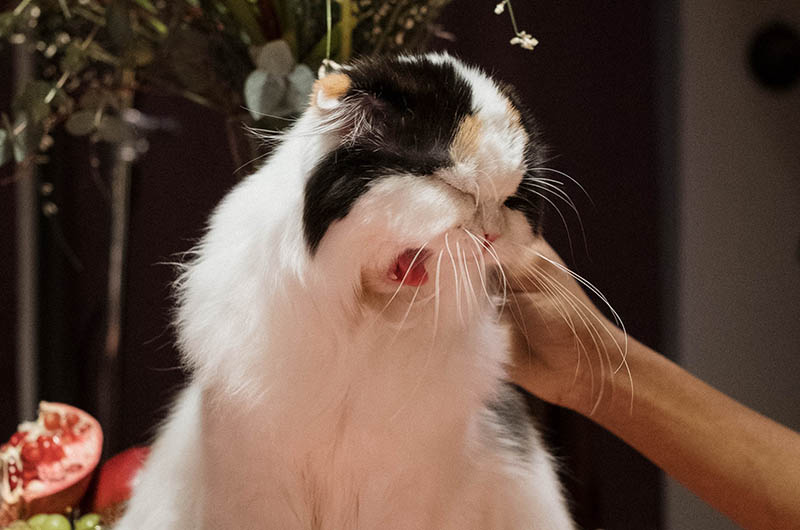
This depends on a few factors. If your cat has sneezed on you once and resumed their regular activity, then, no, you shouldn’t be worried. We all sneeze, and cats are no different. Something like dust triggering the sneezing is normal and is generally an isolated incident. However, if something more sinister is behind the sneeze, the sooner you seek medical advice, the better.
When Should I Take My Cat to the Vet?
Many of these conditions can be painful, and it’s never a bad idea to take your cat to the vet. Sneezing might be one troubling sign, among others, that your pet is ill and requires veterinary care.
- Loss of appetite
- Difficulty breathing
- Nasal discharge
- Persistence of signs beyond a few days
- Weight loss
- Worsening of signs
How Will My Vet Determine the Cause of My Cat’s Sneezing?
You would assume that testing for a virus or bacteria would simply determine a cause. However, a nasal cavity isn’t a sterile location, so a culture that tests positive for certain bacteria doesn’t prove that it is the primary cause of your cat’s sneeze.
- Physical exam
- Imaging (X-rays, computerized tomography scan, etc.)
- Nasal lavage
- Biopsy
- Rhinoscopy

Conclusion
There are various reasons why your cat may be sneezing on you, ranging from the innocent to the more sinister. Generally, if it’s something to worry about, it will be accompanied by other signs. We’ve all been there when you take your cat in for a check-up, and it turns out there was nothing to worry about. However, it’s always better to go to the vet and find out it’s nothing than sit at home and fear it could be something, especially if your cat is showing signs of pain or distress by the frequent sneezing.
Featured Image Credit: Sergio Huainigg, Pixabay
